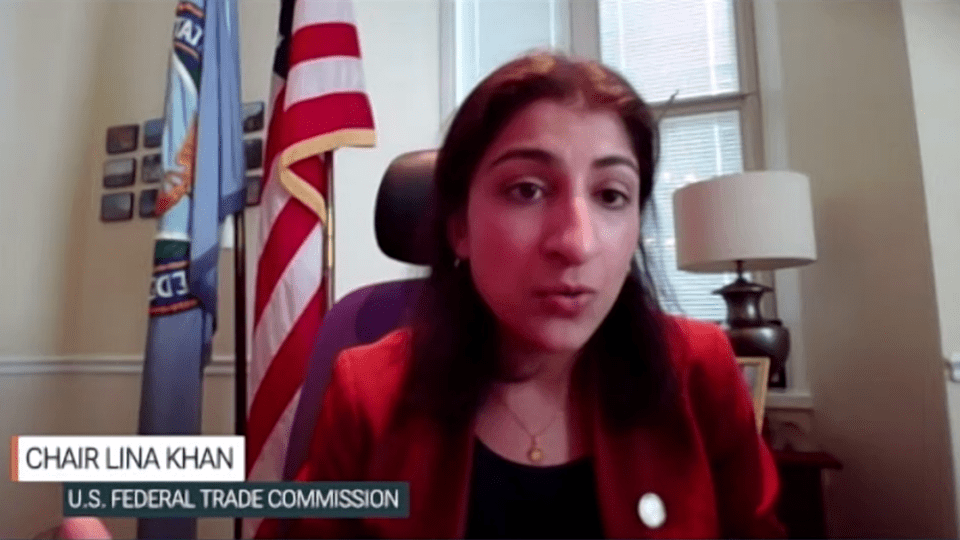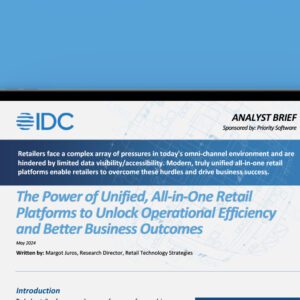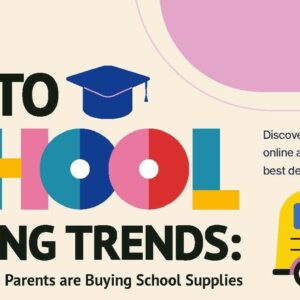For a long time, the American public has hit the “mute” button about the dangers of too much corporate consolidation. One bit of evidence: a decades-long decline in the frequency of the word “monopoly” in published books from a peak in 1949, according to data from Google. But those attitudes appear to be changing, in some cases dramatically.
A study from Pew Research in 2016 found that 65% of Americans felt the country’s economic system “unfairly favors powerful interests.” Since that time events precipitated by the COVID pandemic — including product shortages, high inflation and the closure of countless small businesses — have only heightened consumers’ awareness of the current corporate power dynamics.
At the heart of the fight to bring monopolies, and the unfair economic conditions they can cultivate, back to the forefront of public consciousness is Lina Khan, the fiery, often controversial chair of the Federal Trade Commission (FTC) — and retail is taking center stage in the battle.
“There’s a robust tradition of antitrust and anti-monopoly [efforts in America],” said Khan on a recent webinar co-hosted by the Institute for Local Self-Reliance (ILSR) and Small Business Rising. “While in the 1912 presidential election the question of monopoly was the major issue of the day, in recent decades we have instead seen anti-monopoly and antitrust recede from public consciousness and become much more technocratic. Under this administration we’re departing from that.
Advertisement
“For a long time there was a sense that economic outcomes are the result of inevitable forces, [but now] there’s instead been growing recognition that, in fact, there are policy choices and legal choices that we’re making that determine whether you have a single monopoly that’s dictating outcomes to consumers and small businesses, or whether you have open, fair, competitive markets that actually create opportunity,” Khan added. “Connecting the dots between problems in the world and our policy choices — be it high grocery prices or independent pharmacies being run out of the market — has been key. We have an enormously busy portfolio underway and a key through line is making sure that our economy and our markets are serving everybody. That means consumers, but it also means independent business.”
Among the biggest pain points Khan believes consumers are currently facing is the impact of what she describes as “dominant middlemen that may be distorting the market.” This focus has resulted in lawsuits against Mastercard and Amazon, a move to block the Kroger-Albertsons merger (which was just given an Aug. 26 hearing date) and an ongoing investigation into the impact of Pharmacy Benefit Managers (PBMs) on independent pharmacies.
Without a doubt, Khan’s work today will have far-reaching implications for the retail industry and the American economy, although we may not know what that impact is for many years (the case against Amazon, for example, has been scheduled for a 2026 court date). In the meantime, Khan gave small business owners a glimpse into her (and therefore the current administration’s) current stance on what qualifies as a “fair market” and how the agency she leads is taking action.
Cracking Down on the ‘Gatekeepers’
When antitrust law was first being developed and used in the 1800s, railroad monopolies were often the targets. While the types of companies drawing the federal government’s attention has changed dramatically in the intervening years, in Khan’s view the goal of these protections is still exactly the same: “To ensure that our commercial sphere and our economic sphere enjoys the same types of checks and balances against concentrated power that our constitution provides in our political sphere,” she explained on the webinar. “Because lawmakers recognize that open, fair competition is what best serves the public — it serves consumers, it serves workers and it also creates opportunities for new, independent businesses, to make sure that the best ideas can win and really rise to the top.”
In this regard, Khan said the FTC is particularly focused on what she described as “gatekeeper markets”: “All too often what we hear, from small businesses in particular, is that currently markets are set up so that their success is not based on their merits or whether consumers like their products, but is dictated by an existing monopoly or dominant gatekeeper. Those gatekeeper markets are especially interesting to us because we know that oftentimes businesses have to go through these gatekeepers to access customers, and the gatekeepers can have an outsized effect on whether a small business can survive or will go under.”
Khan pointed to the FTC’s recent lawsuit against Mastercard as one example, with the agency winning a settlement for its claims that Mastercard’s practices to block competition were elevating prices for businesses and those higher prices were then being passed on to consumers.
However, the FTC’s recent lawsuit against Amazon offers perhaps the most salient example of the “gatekeeper” phenomenon. One small businessman on the call, Nicholas Parks, Owner of Snobfoods.com, who has been an Amazon seller for over 20 years, said, “Being an Amazon seller has become increasingly difficult as a business over time, especially in the last five to 10 years. I frequently compare it to being in a long-term abusive relationship with a partner who just happens to be the abuser in several hundreds of thousands of other relationships at the same time.”
Another speaker on the call, Danny Caine, Co-Owner of Raven Book Store and a member of the American Booksellers Association, said that “the Amazon conversation” is now part of the unofficial training at nearly all independent book shops: “Every bookseller in America needs to be prepared to talk about bookselling in the shadow of Amazon’s outsized and destructive impact on our industry,” he said on the webinar.
However, Caine also said that he thinks the tide is turning, at least when it comes to the book category, pointing to the FTC’s recent actions and his own experience with customers. “I know firsthand from conversations I’ve had that the whole world is looking to us in how we conduct this fight against corporate monopolies,” Caine said. “I’m happy to report that the tenor of the conversations we’re having in the store is changing. The amount of support and positive discussions we’re having about the role of small businesses and the risks of monopoly control is really inspiring.”
Putting a Stop to ‘Power Consolidations’
Khan and the FTC also are working to keep these “gatekeeper markets” from coming into existence altogether by focusing on mergers and acquisitions that could threaten competition.
In just the last year, a number of major mergers have been blocked, albeit not specifically due to actions by the FTC, including Penguin Random House’s acquisition of Simon & Schuster (prompted by a U.S. Justice Department lawsuit) and Amazon’s acquisition of iRobot (due to regulatory pushback in the EU). Just last month, the FTC sued to block Kroger’s proposed acquisition of Albertsons, claiming that it would “eliminate competition and raise grocery prices for millions of Americans” despite the companies’ claims to the contrary.
Khan said the decision to take action in the Kroger-Albertsons merger was prompted in part by “hearing directly from businesses, including independent businesses, about how prior mergers have actually worked out.” These listening sessions haven’t been focused solely to the grocery or even the retail sector, with Khan and her team also seeking input on the impact of consolidation in a range of other markets, including the healthcare and music industries.
Regardless of the industry though, the impact is frequently the same: “Oftentimes when these mergers are proposed there are all sorts of efficiencies that are claimed or benefits for consumers or the market, but all too often those promises don’t bear out,” said Khan.
As webinar moderator Stacy Mitchell of the ILSR pointed out, in the past government actions to stop business consolidation have sometimes been seen as “protectionist” on the part of small businesses and as standing in the way of business efficiency, but Khan said that idea is evolving as well. “There’s been a reckoning with reality over the last few years about the costs of focusing purely on certain narrow metrics of efficiency,” she said. “One example was during the pandemic, where we saw the seizing up of supply chains and a real reckoning with the fact that concentration and consolidation and outsourcing entire lines of production externally had rendered our supply chains much more brittle, so that when you have a single shock, a single disaster, it can lead to the entire supply chain seizing up.
“Real operational efficiency is important and it’s something we want to promote, but what we’ve seen is that sometimes claims of efficiency can mask what is actually quite inefficient, and what is actually an exploitation of special privileges,” Khan added. “If in fact somebody has greater operational efficiencies, great, they should have an opportunity to compete on a level playing field and thrive. But what we don’t want is for dominant firms, monopolistic firms to be using their existing special privileges, unfair advantages or unlawful tactics to get ahead.”
The Wheels of Justice Move Slowly
While under Khan the FTC is taking a much more active approach to antitrust and monopolies than the agency has for some time, the results of those efforts will be slow in coming, and Khan was open in acknowledging this.
Speaking specifically on the Amazon lawsuit — which, while filed in September 2023 won’t see the light of day in court until October of 2026 — Khan said: “We’re excited about moving forward with this lawsuit and really vindicating our theory of the case, getting the court to find liability and then issuing a remedy that fully restores the underlying harm. It’s no secret that antitrust litigation can take a long time to wind its way through the courts. Unfortunately, that’s something that all too often is outside of our hands entirely, and it would probably require action from Congress or lawmakers to make sure that these lawsuits can move more quickly.”













